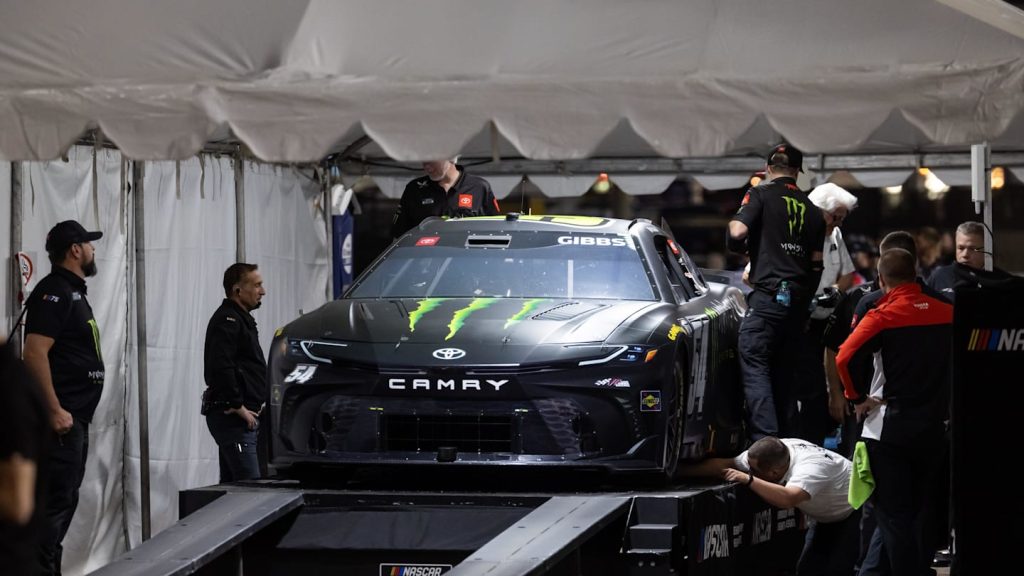NASCAR’s ‘Run What Ya Brung’ Concept for the All-Star Race
NASCAR recently proposed a ‘Run What Ya Brung’ format for the upcoming All-Star Race at North Wilkesboro Speedway. This idea would have allowed teams to have full control over their cars, provided they completed a safety inspection, enabling them to modify their vehicles as they wished for the event.
This initiative aimed to gather insights to improve the short track package, which has faced criticism since the introduction of the Next Gen car in 2022.
However, teams ultimately chose not to participate in this format. On the Actions Detrimental Podcast, Denny Hamlin explained that the decision was largely influenced by financial concerns. He estimated that teams would need to invest around $2 million in research and development to compete for a $1 million prize in the All-Star Race.
Hamlin argued that teams should not shoulder the costs of helping NASCAR develop the Next Gen car. In contrast, Mike Forde from NASCAR, during the latest Hauler Talk Podcast, challenged Hamlin’s calculations, suggesting they were significantly off. Forde contended that the ‘Run What Ya Brung’ format could potentially save teams money.
Hamlin noted that his team, 23XI Racing, would effectively make three chassis unusable for future races, leading to a hefty expense. He claimed his team would spend around $1 million collaborating with Joe Gibbs Racing on new parts. However, Forde refuted this, stating that teams would not be allowed to modify single-source parts or create new ones, which would offset additional costs.
Under the proposed rules, teams could adjust ride heights, choose diffusers, and mix and match spoiler bases, all using existing parts. Forde suggested that teams could have saved money by utilizing earlier body panels not suited for competitive races without incurring extra expenses.
Ultimately, Forde emphasized that significant consideration went into the ‘Run What Ya Brung’ idea, aimed at addressing the issues with the short track package. He asserted that NASCAR’s leadership prioritizes cost-effective decisions for teams, countering Hamlin’s claims of a lack of thought behind the proposal.



